
Ngchesar: Palau's Hidden Gem of Tranquility
Ngchesar, a serene village in Palau, offers a peaceful escape from the hustle and bustle of city life. Nestled on Babeldaob Island, it provides a unique blend of natural beauty and cultural heritage. The lush landscapes, crystal-clear waters, and rich biodiversity make it a perfect destination for nature lovers and adventure seekers alike. One of Ngchesar's most captivating features is its untouched environment. Visitors can explore pristine forests, vibrant coral reefs, and serene waterfalls. The village is a haven for bird watchers, with many endemic species to be spotted. The Ngchesar Waterfall, in particular, is a must-visit, offering a refreshing retreat and a picturesque setting for picnics and relaxation. Cultural enthusiasts will also find Ngchesar fascinating. The village is home to traditional bai (meeting houses) and stone pathways that provide insights into Palau's rich history. The friendly locals are eager to share their customs and traditions, making your visit both educational and memorable. Don't miss the chance to experience a traditional Palauan feast, where you can savor local dishes made from fresh, organic ingredients. Ngchesar is also an excellent base for exploring the rest of Babeldaob Island. Take a short drive to see the ancient stone monoliths at Ngarchelong or the historic WWII sites. The island's diverse attractions ensure that there's something for everyone, whether you're interested in history, wildlife, or simply enjoying the stunning scenery.
Local tips in Ngchesar
- Bring comfortable hiking shoes for exploring the trails and waterfalls.
- Visit the Ngchesar Waterfall early in the morning to avoid crowds.
- Hire a local guide to learn about the cultural significance of the bai and stone pathways.
- Try the local cuisine at a traditional Palauan feast for an authentic experience.
- Rent a car to easily explore other attractions on Babeldaob Island.
When is the best time to go to Ngchesar?
Iconic landmarks you can’t miss
Belau National Museum
Explore Palau's rich cultural heritage at the Belau National Museum, a vital hub showcasing the islands' history, art, and natural wonders.
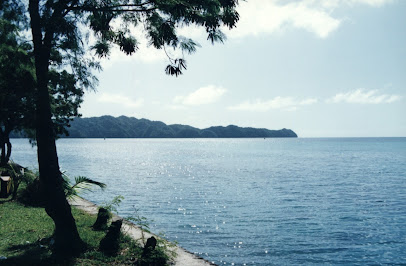
Ngardmau Waterfalls
Explore the breathtaking Ngardmau Waterfalls in Ngiwal, Palau, a natural wonder perfect for adventure seekers and nature lovers.
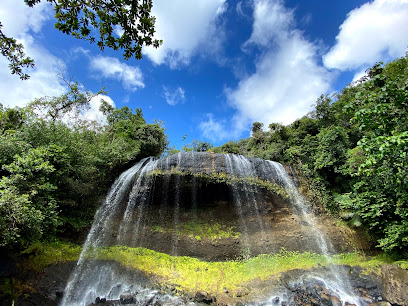
Palau Dive Adventures
Explore the vibrant underwater world with Palau Dive Adventures, your gateway to unforgettable diving experiences in the stunning waters of Palau.
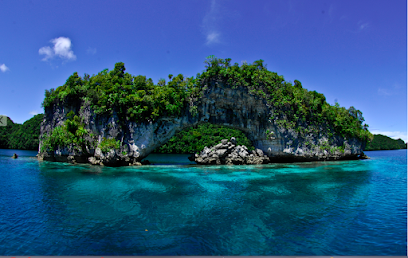
Japan-Palau Friendship Bridge
Explore the Japan-Palau Friendship Bridge, a stunning architectural marvel uniting two nations amidst breathtaking natural beauty in Palau.
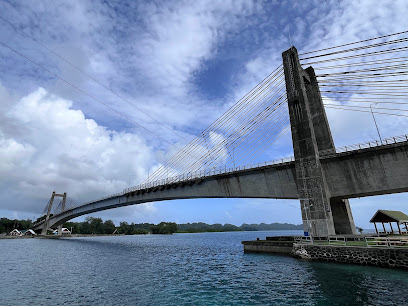
Dolphins Pacific
Experience the thrill of swimming with dolphins at Dolphins Pacific, a leading aquarium in Palau dedicated to marine conservation and unforgettable encounters.
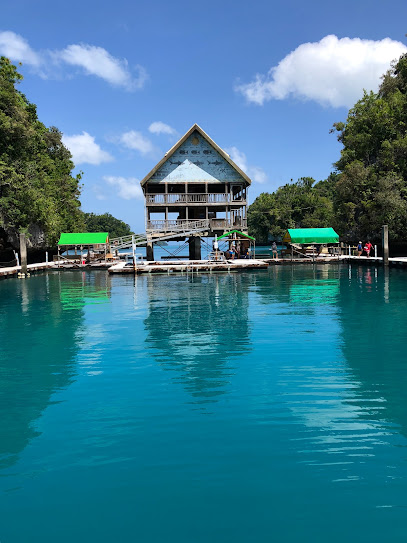
Palau Aquarium
Discover the vibrant marine life of the Pacific at Palau Aquarium, an educational haven in Koror that enchants visitors with its stunning aquatic exhibits.
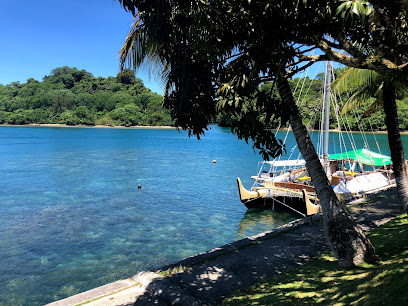
German Channel
Discover the serene beauty of the German Channel in Palau, a paradise for snorkeling, diving, and enjoying breathtaking marine life.
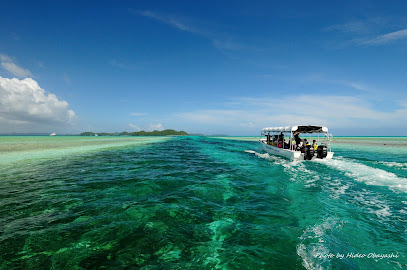
Badrulchau Stone Monoliths
Discover the ancient Badrulchau Stone Monoliths in Ngarchelong, Palau - a captivating glimpse into the region's rich cultural heritage and history.
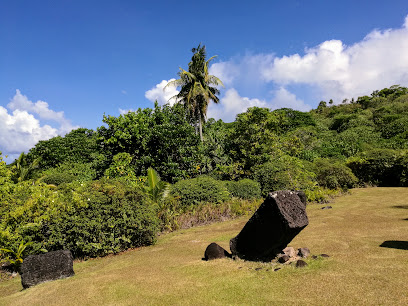
Palau National Capital
Explore the serene Palau National Capital, where government meets stunning natural beauty in the heart of the Pacific.
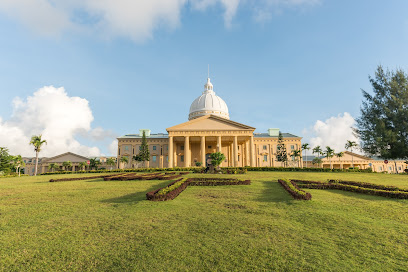
Peleliu Peace Memorial Park
Explore the serene Peleliu Peace Memorial Park, where history and tranquility converge on your Palau adventure.
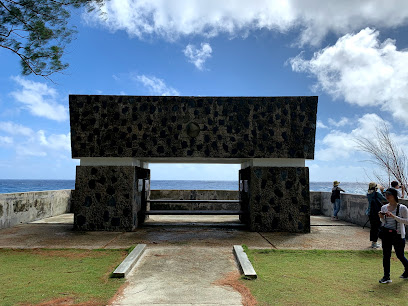
Paddling Palau
Explore the serene lagoons and vibrant reefs of Palau with Paddling Palau, your gateway to unforgettable aquatic adventures.
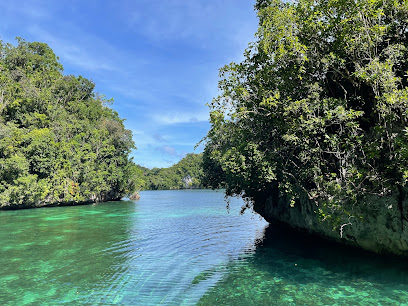
World War II Japanese Communications Center
Discover the World War II Japanese Communications Center, a historical landmark in Airai, Palau, offering a glimpse into the region's rich military history.
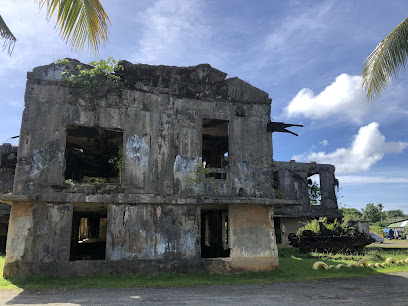
Airai Bai
Immerse yourself in the serene beauty of Airai Bai, a natural paradise in Palau, perfect for adventure and relaxation alike.
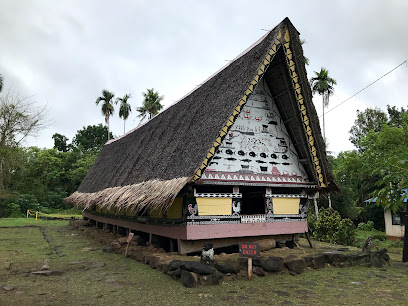
Palau Visitors Authority
Explore the breathtaking landscapes and vibrant culture of Palau at the Palau Visitors Authority, your essential travel guide in paradise.
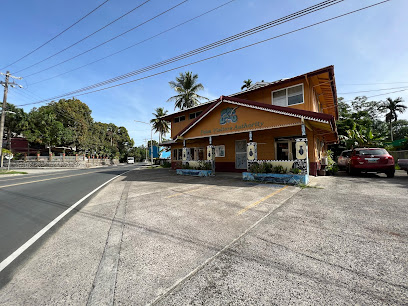
Belau Eco Glass
Discover the art of glassblowing at Belau Eco Glass in Koror, Palau – a community center blending creativity, sustainability, and local craftsmanship.
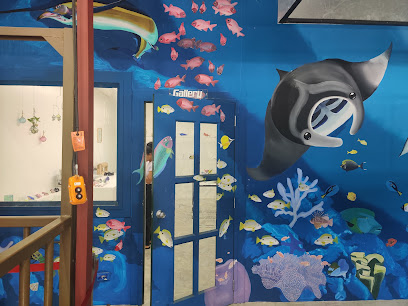
Unmissable attractions to see
Milky Way
Experience the breathtaking beauty of Milky Way in Koror, Palau, where stunning beaches meet vibrant marine life for an unforgettable adventure.
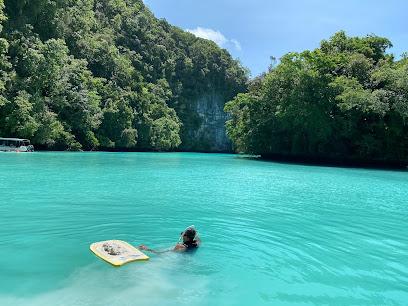
Belau National Museum
Explore Palau's cultural heritage at the Belau National Museum, a captivating destination showcasing the island's history and artistry.
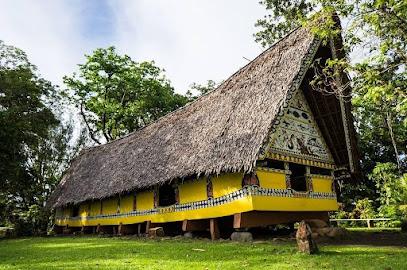
Jellyfish Lake
Discover the enchanting Jellyfish Lake in Palau, where you can swim with harmless jellyfish in a stunning natural setting surrounded by lush landscapes.
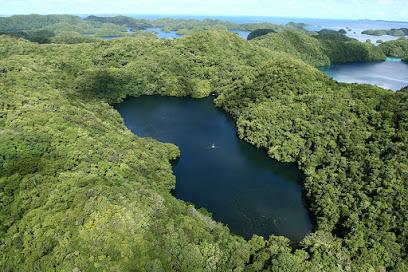
Island Paradise Resort Club
Discover luxury and adventure at Island Paradise Resort Club in Koror, Palau – a tropical haven for relaxation and exploration.
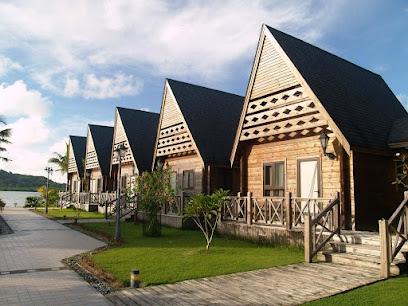
German Channel
Explore the German Channel in Palau, a diver's paradise with vibrant marine life and stunning coral reefs waiting to be discovered.
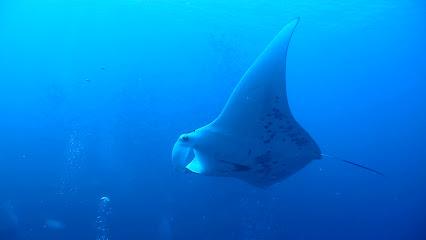
Etpison Museum
Discover the rich heritage of Palau at Etpison Museum, showcasing traditional artifacts and cultural insights in the heart of Koror.
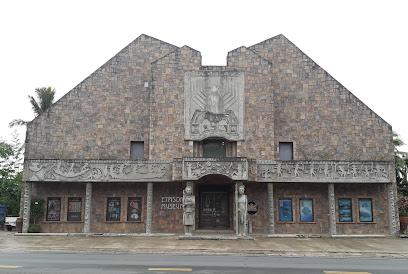
Ngermeaus Island Park
Experience the tranquil beauty of Ngermeaus Island Park in Palau – a perfect escape into nature with lush landscapes and stunning coastal views.
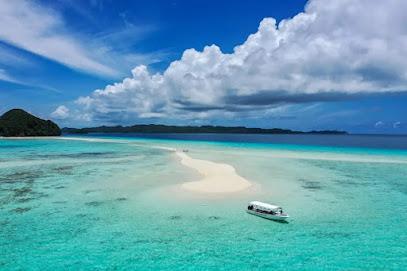
Neco Marine Palau
Discover the vibrant underwater world of Palau with Neco Marine, your premier dive shop and tour agency for unforgettable marine adventures.
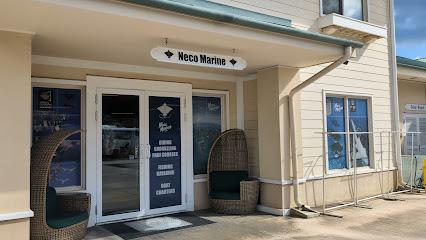
The Rock Islands
Explore the breathtaking Rock Islands of Palau, an enchanting archipelago showcasing stunning limestone formations and vibrant marine life.
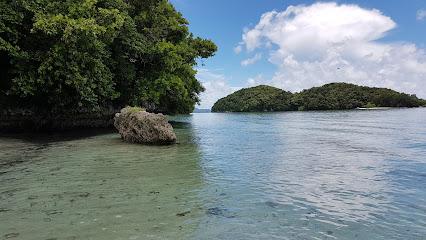
Siase corner
Experience the stunning natural beauty and rich culture at Siase Corner, a must-visit tourist attraction in Palau offering adventure and serenity.
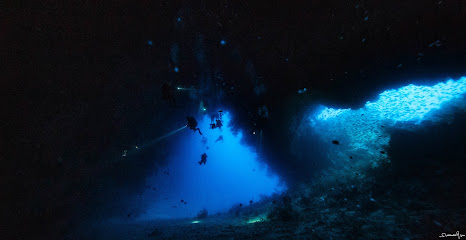
Frog Wall
Explore the vibrant Frog Wall in Koror, Palau - a stunning blend of art and nature that celebrates local culture and creativity.
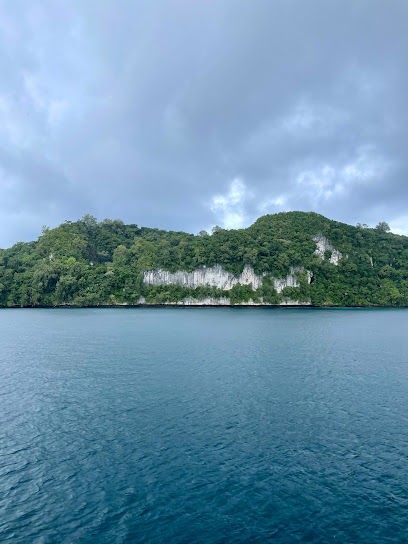
Rose Garden Snorkeling
Explore the vibrant marine life at Rose Garden Snorkeling in Koror, Palau, a top destination for underwater adventure seekers.
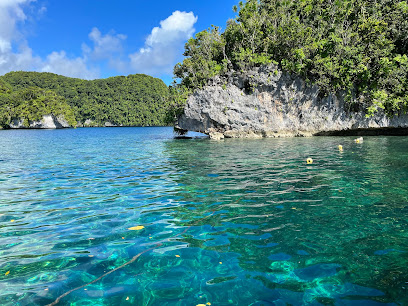
Ngetmeduch Park
Discover the tranquil beauty of Ngetmeduch Park in Babeldaob, Palau, a perfect escape for nature lovers and leisurely picnics.
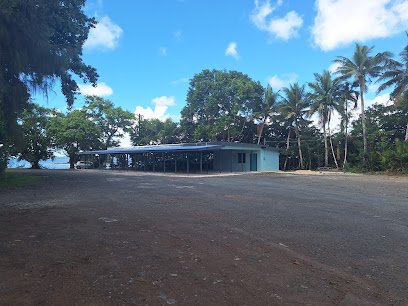
Nikko bay
Explore the breathtaking beauty of Nikko Bay in Koror, Palau, where turquoise waters meet lush landscapes and vibrant marine life.
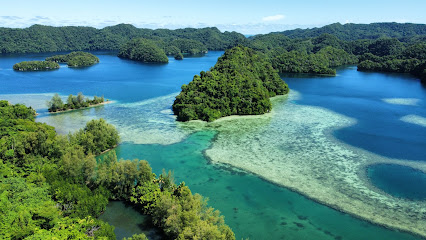
Ngesang Beach
Discover the untouched beauty of Ngesang Beach, a serene tropical oasis in Palau, perfect for relaxation, snorkeling, and cultural experiences.

Essential places to dine
Drop Off Bar and Grill
Savor delicious seafood and local dishes at Drop Off Bar and Grill in Koror, Palau – a culinary gem with stunning ocean views.
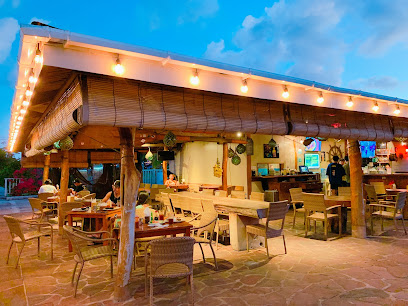
The Taj
Experience authentic Indian cuisine at The Taj in Koror, Palau – where rich flavors meet welcoming hospitality.
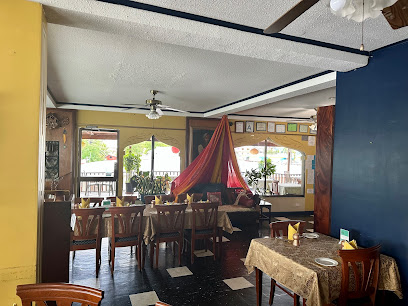
Elilai Seaside Dining
Experience fine dining at Elilai Seaside Dining in Palau, where exquisite cuisine meets breathtaking ocean views for an unforgettable meal.
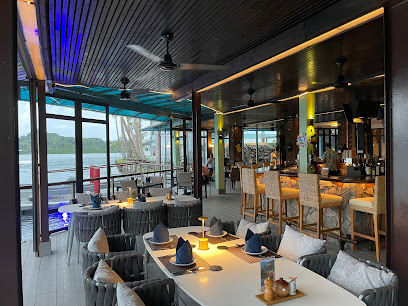
Tori Tori
Discover authentic Japanese cuisine at Tori Tori in Koror, Palau – where culinary artistry meets tropical paradise.
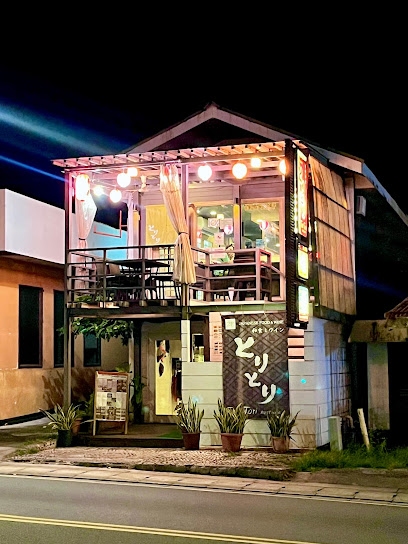
The Canoe House
Discover delightful dining at The Canoe House – where local flavors meet vibrant entertainment in the heart of Palau.
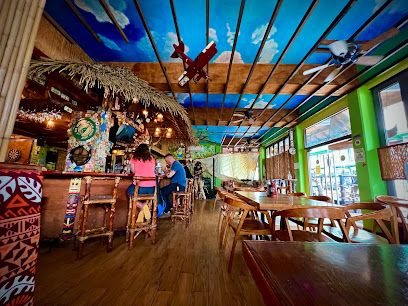
Rock Island Cafe
Discover the culinary delights at Rock Island Cafe in Koror - where local flavors meet international cuisine amidst breathtaking views.
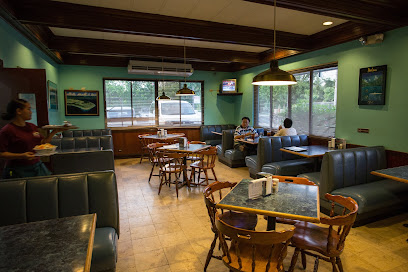
Coffee Berry
Experience authentic Palauan cuisine at Coffee Berry - where local flavors meet cozy ambiance in Koror.
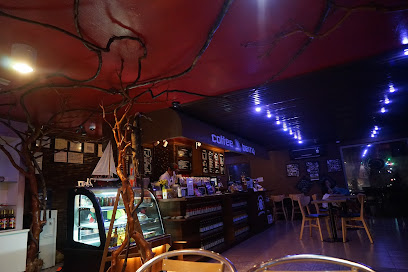
Palm Bay Bistro
Experience exquisite Pan Asian cuisine at Palm Bay Bistro in Malakal – where vibrant flavors meet stunning views.
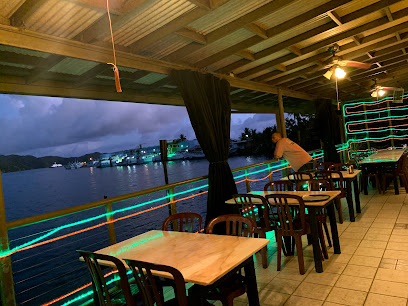
Suriyothai
Experience authentic Thai cuisine at Suriyothai in Koror, where every dish tells a story of flavor and tradition.
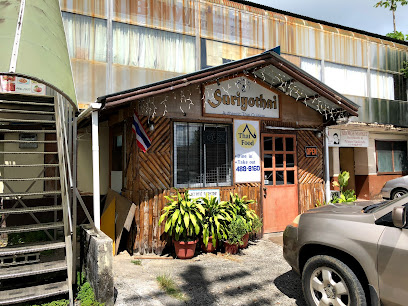
Carp Restaurant
Discover authentic Palauan cuisine at Carp Restaurant in Koror—an affordable dining experience with fresh seafood and warm hospitality.
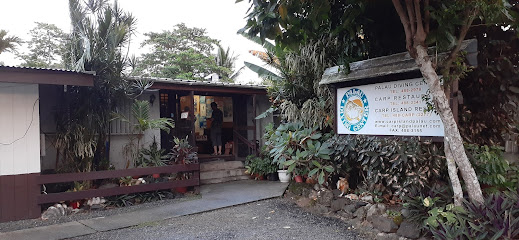
7 Eat Restaurant
Discover the rich flavors of Palau at 7 Eat Restaurant - where local ingredients meet global inspiration.
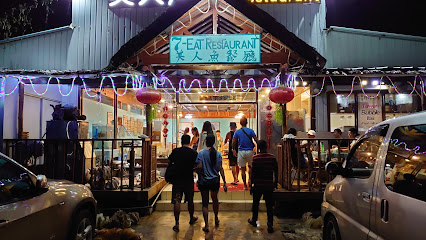
Palau Umi Korean and Japanese Cuisine
Experience authentic Korean and Japanese cuisine at Palau Umi in Koror - where every dish tells a story.
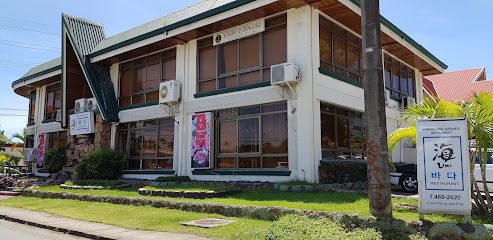
Okemii Deli & Internet Cafe
Experience authentic Palauan cuisine at Okemii Deli & Internet Cafe - where great food meets connectivity.
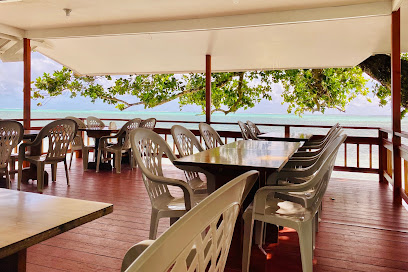
Red Rooster Cafe
Experience delightful dining at Red Rooster Cafe in Koror, Palau—where local flavors meet international cuisine in a cozy setting.
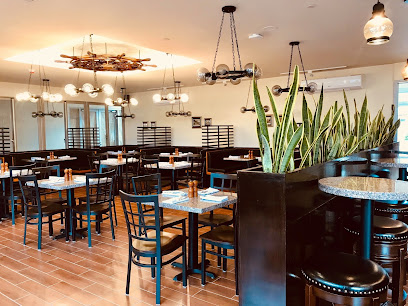
King Palace
Experience authentic Palauan cuisine at King Palace in Koror—where every meal is a celebration of flavor and culture.
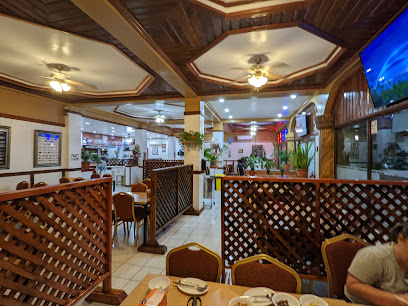
Markets, malls and hidden boutiques
WCTC Shopping Center
Experience the vibrant shopping and dining scene at WCTC Shopping Center in Koror, Palau, where local culture meets international flair.
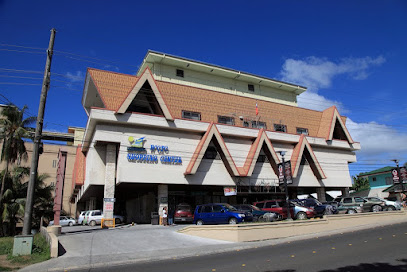
Surangel and Sons Co. - Koror
Discover the vibrant shopping experience at Surangel and Sons Co. in Koror, where local culture meets stunning souvenirs and exceptional hospitality.
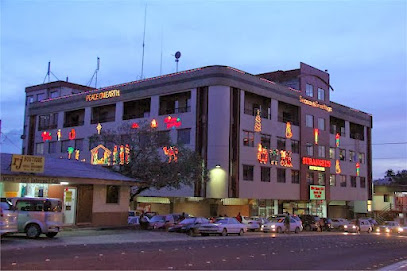
Rur Gift Shop & Cafe
Explore Rur Gift Shop & Cafe in Koror, Palau for unique souvenirs and a cozy spot to enjoy local flavors and crafts.
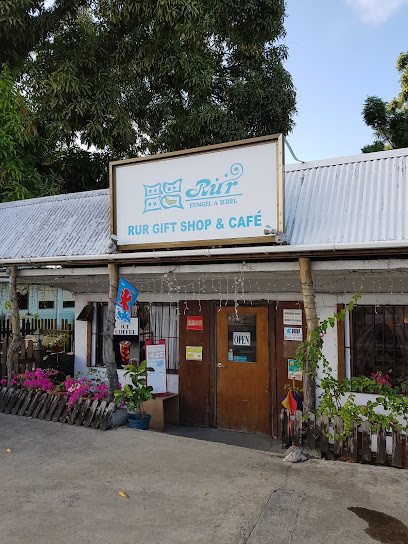
Ben Franklin Department Store
Explore Ben Franklin Department Store, a vibrant shopping hub in Koror, Palau, offering a unique blend of local products and international brands.
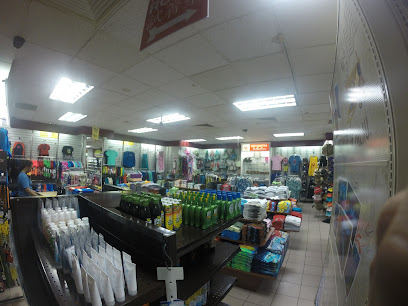
EXILE
Explore the vibrant clothing store EXILE in Koror, Palau, and immerse yourself in local fashion and culture with unique island-inspired styles.
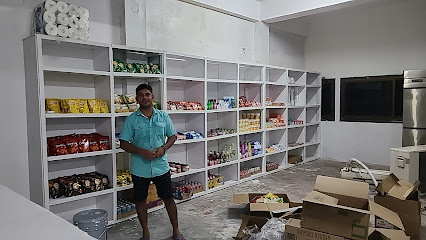
Amel Store
Discover the vibrant flavors of Palau at Amel Store, your go-to grocery destination in Melekeok for local and imported goods.
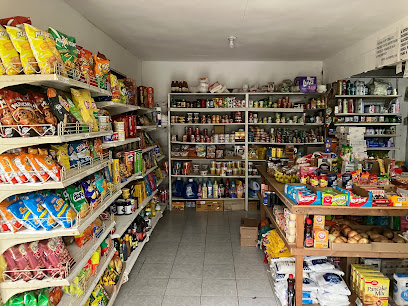
Wilson's Store
Discover local flavors and essentials at Wilson's Store, your go-to grocery destination in Koror, Palau.
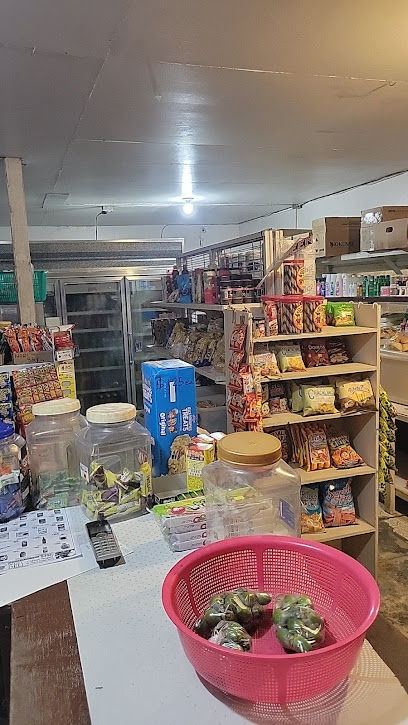
Lius Gift Shop
Explore Lius Gift Shop in Koror for unique souvenirs, cosmetics, and delicious local cookies, capturing the essence of Palau's culture and charm.
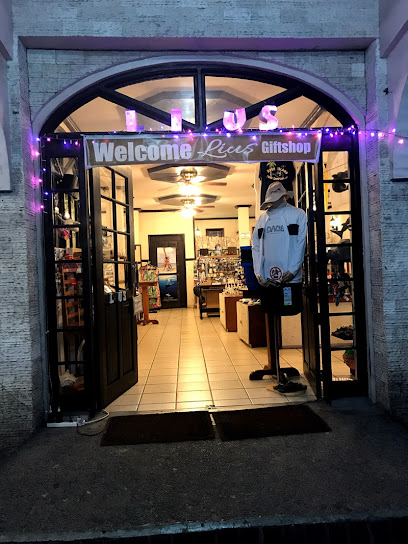
E&A Store
Experience local culture and vibrant shopping at E&A Store in Melekeok, Palau – a must-visit destination for tourists.
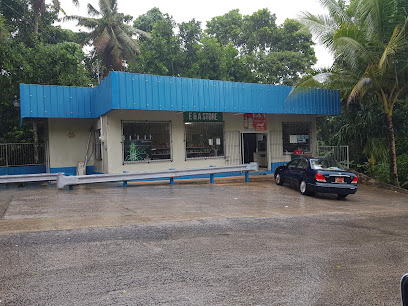
Palau Central Trading Co.
Explore Palau Central Trading Co. for unique gifts, local art, and gourmet treats that reflect the vibrant culture of Palau.
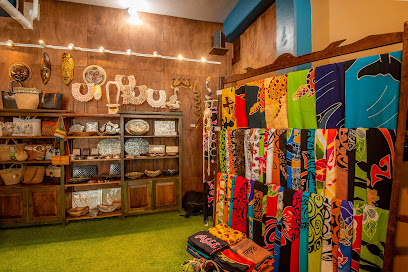
Long Beach
Discover convenience and local flair at Long Beach, your one-stop shop in Ngaraard, Palau, with essentials and unique finds for every traveler.
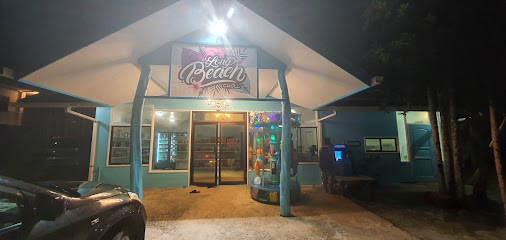
FRANCO'S
Explore the diverse offerings at Franco's, the go-to grocery store in Koror for local delicacies and international favorites.
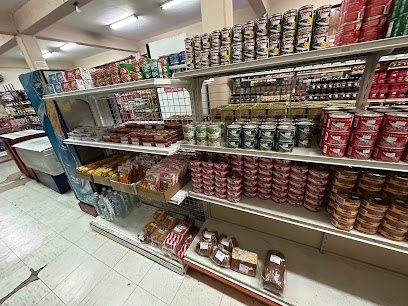
Kwik Mart
Explore the vibrant flavors and local specialties at Kwik Mart in Koror—your go-to grocery store for all travel essentials.
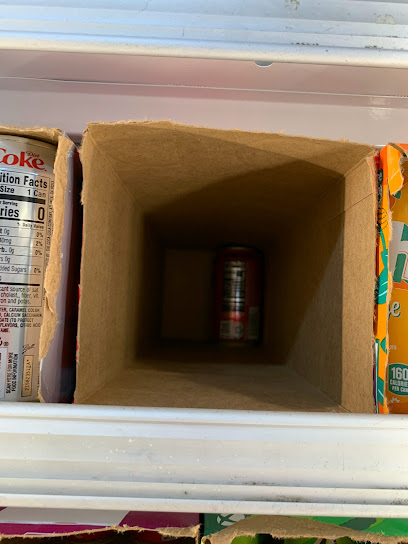
Community Store-2(CS-2)
Explore the vibrant local culture at Community Store-2 in Airai, Palau—your one-stop shop for fresh produce and local snacks.

Capital Seaside Store
Explore unique local craftsmanship and souvenirs at the Capital Seaside Store in scenic Melekeok, Palau.
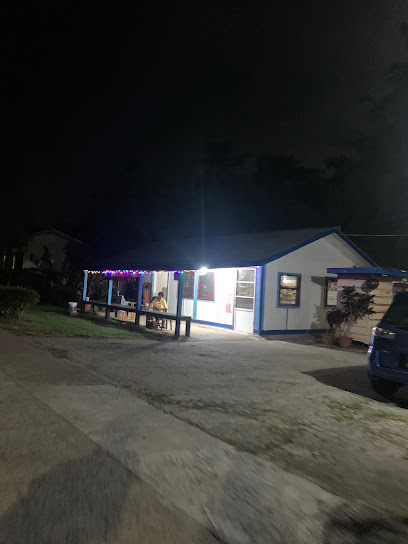
Essential bars & hidden hideouts
Drop Off Bar and Grill
Experience the vibrant flavors and stunning seaside views at Drop Off Bar and Grill in Koror, Palau - a culinary gem for every traveler.
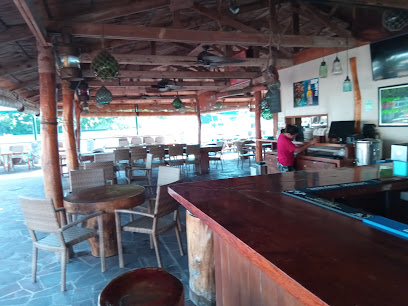
The Canoe House
Experience the vibrant nightlife and delicious cuisine at The Canoe House, a culinary gem in Koror, Palau, perfect for food lovers and music enthusiasts.
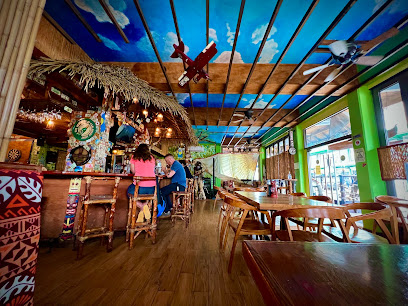
Red Rooster Cafe
Discover the vibrant flavors of Palauan cuisine at Red Rooster Cafe in Koror, a must-visit spot for tourists seeking delightful dining experiences.
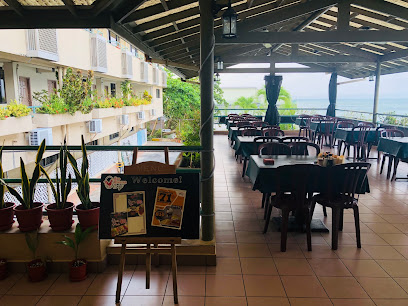
Krämer’s Bar and Restaurant
Discover the exquisite flavors of Palau at Krämer’s Bar and Restaurant, where local ingredients meet international culinary artistry in a warm atmosphere.
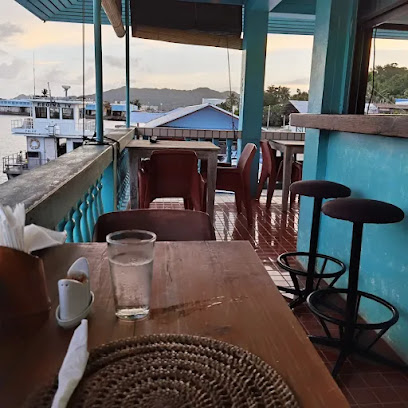
Riptide Beach Bar & Grill
Experience the taste of Palau at Riptide Beach Bar & Grill, where delicious meals meet stunning ocean views in a vibrant atmosphere.
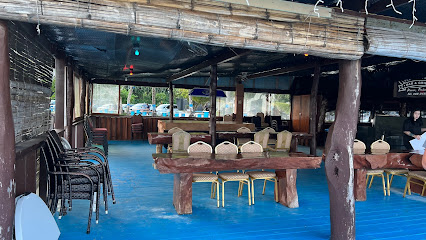
Barracuda Restaurant
Discover the culinary delights of Barracuda Restaurant in Koror, where fresh seafood meets vibrant local flavors in a stunning seaside setting.
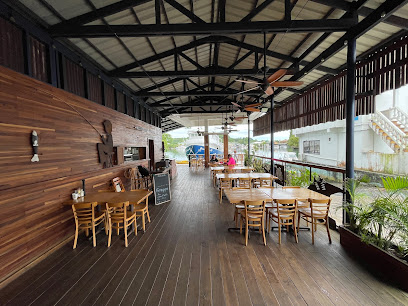
Hungry Marlin Restaurant & Bar at COVE Resort Palau
Discover the vibrant flavors of Hungry Marlin Restaurant & Bar, where local seafood meets stunning ocean views in Koror, Palau.
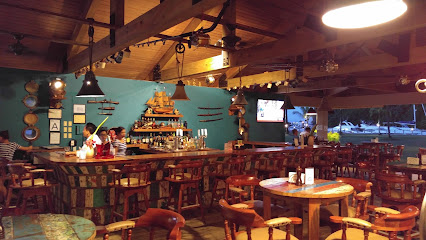
The Salad Bar
Discover the fresh flavors of health-focused cuisine at The Salad Bar in Koror, Palau, where nutrition meets deliciousness.
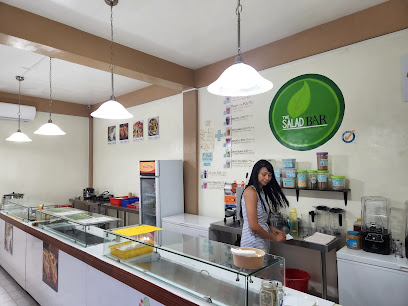
Executive Lounge
Discover culinary excellence at Executive Lounge in Koror, Palau, where exquisite flavors meet a tranquil dining atmosphere.
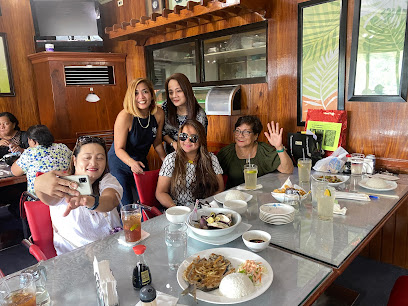
Bottom Time Bar and Grill
Experience the vibrant flavors of Palau at Bottom Time Bar and Grill, a top spot for tourists in Koror offering local cuisine and stunning views.
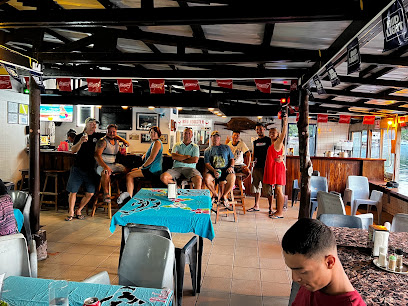
Jungle Bar
Discover the vibrant Jungle Bar in Koror, where delightful culinary experiences meet lively island ambiance in the heart of Palau.
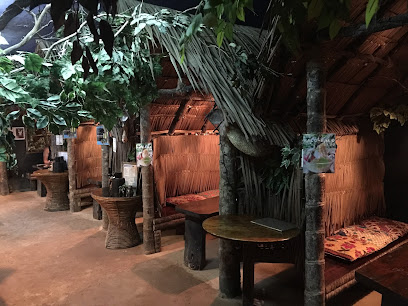
Weltz Bar at the Palasia Hotel
Discover the vibrant nightlife of Koror at Weltz Bar in Palasia Hotel, where exquisite drinks and stunning views await every visitor.
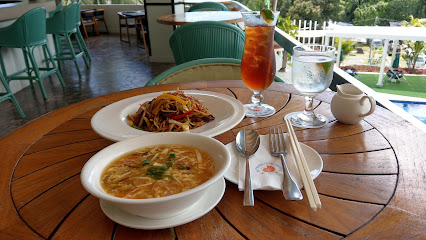
Club Gorgeous
Experience the vibrant nightlife of Koror at Club Gorgeous, where tropical cocktails and live music create unforgettable memories.
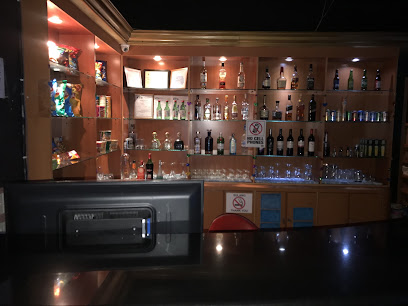
The Republic Restaurant & Bar
Discover the vibrant flavors of Palau at The Republic Restaurant & Bar, where local cuisine meets a lively atmosphere in the heart of Koror.

Local Phrases
-
- HelloAlii
[ah-lee] - GoodbyeKopikop
[ko-pee-koap] - YesOngal
[ong-gal] - NoMelekoi
[me-leh-koy] - Please/You're welcomeCheldecheduch
[chel-deh-ched-ooch] - Thank youSulang
[soo-lang] - Excuse me/SorryChedam
[cheh-dam] - How are you?Kmal meral di song
[kmal meral dee song] - Fine. And you?Meral. A rengalech?
[meral. ah reng-ah-lech] - Do you speak English?Meral di oumesingd el chad?
[meral dee oh-meh-sing-d el chad] - I don't understandNg diak el kmo a rengalek
[ng dee-ak el kmo a reng-ah-lek]
- HelloAlii
-
- I'd like to see the menu, pleaseUngil el menu er ngak, meral di cheldecheduch
[ung-gil el men-oo er ngak, meral dee chel-deh-ched-ooch] - I don't eat meatNg diak meral mlechell
[ng dee-ak meral mleh-chell] - Cheers!Ungil tutau
[ung-gil too-tow] - I would like to pay, pleaseUngil el kirel a bisech er a cheldecheduch
[ung-gil el kee-rel a bee-sech er a chel-deh-ched-ooch]
- I'd like to see the menu, pleaseUngil el menu er ngak, meral di cheldecheduch
-
- Help!Kmal meral di cheldecheduch!
[kmal meral dee chel-deh-ched-ooch!] - Go away!Kemiu di cheldecheduch!
[kem-ee-oo dee chel-deh-ched-ooch!] - Call the Police!Kemiu di cheldecheduch er a kesolei
[kem-ee-oo dee chel-deh-ched-ooch er a ke-so-lay] - Call a doctor!Kemiu di cheldecheduch er a kerrai
[kem-ee-oo dee chel-deh-ched-ooch er a ker-rai] - I'm lostNg meral mla mo chad er a beluu
[ng meral mla mo chad er a bel-oo] - I'm illNg meral mla mo techelid
[ng meral mla mo tech-eh-leed]
- Help!Kmal meral di cheldecheduch!
-
- I'd like to buy...Ungil el kirel a beluu er ngak
[ung-gil el kee-rel a bel-oo er ngak] - I'm just lookingNg meral mla mo cheroid
[ng meral mla mo che-roid] - How much is it?Ng diak el kmo er a blil a ...?
[ng dee-ak el kmo er a bleel a ...?] - That's too expensiveA blil a ... a ngarngii
[a bleel a ... a ngarngii] - Can you lower the price?Ng diak el kmo ngarngii
[ng dee-ak el kmo ngarngii]
- I'd like to buy...Ungil el kirel a beluu er ngak
-
- What time is it?Kmal meral di beab el timek?
[kmal meral dee be-ab el tim-ek] - It's one o'clockA rengalek el ousbech er kid
[ah reng-ah-lek el ows-bech er kid] - Half past (10)Olsbek a tekoi
[ols-bek a teh-koy] - MorningEngakl
[eng-akl] - AfternoonEngaol
[eng-ow-l] - EveningEnga
[eng-gah] - YesterdayA ngalek el kmo er a uchei
[a ngah-lek el kmo er a oo-chay] - TodayA rengalek el kmo er a uchei
[ah reng-ah-lek el kmo er a oo-chay] - TomorrowA rengalek el kmo er a uchei
[ah reng-ah-lek el kmo er a oo-chay] - 1Ousbech
[ows-bech] - 2Ongil
[ong-gil] - 3Ongit
[ong-git] - 4Ongiit
[ong-giit] - 5Ongiis
[ong-giis] - 6Ongiuk
[ong-giuk] - 7Ongirdech
[ong-gi-rdech] - 8Ongirbeluu
[ong-gi-bel-oo] - 9Ongirdechel
[ong-gi-rde-chel] - 10Ongirtekoi
[ong-gi-teh-koy]
- What time is it?Kmal meral di beab el timek?
-
- Where's a/the...?Kmal meral di cheldecheduch er a ...?
[kmal meral dee chel-deh-ched-ooch er a ...?] - What's the address?Beab el chad er a cheldecheduch?
[be-ab el chad er a chel-deh-ched-ooch?] - Can you show me (on the map)?Ng diak el kmo er a cheldecheduch er a delongel
[ng dee-ak el kmo er a chel-deh-ched-ooch er a del-ong-el] - When's the next (bus)?Kmal meral di beab el timek er a beluu?
[kmal meral dee be-ab el tim-ek er a bel-oo?] - A ticket (to ....)Ungil el kirel a bilis er a ...
[ung-gil el kee-rel a bee-lees er a ...]
- Where's a/the...?Kmal meral di cheldecheduch er a ...?
History of Ngchesar
-
Ngchesar is known for its ancient stone paths, which are remnants of early Palauan society. These paths, known as 'bai er a beluu,' were once vital trade and communication routes that connected different villages. The stone paths showcase the ingenuity and craftsmanship of the early inhabitants and serve as a testament to the advanced social organization of ancient Palauan culture.
-
Ngchesar is home to traditional 'bai' houses, which are intricately decorated meeting houses that play a central role in Palauan culture. These structures are adorned with symbolic carvings and paintings that depict Palauan mythology, history, and values. The bai houses serve as communal gathering spots where elders discuss village affairs, make decisions, and preserve the oral traditions of the community.
-
Historically, Ngchesar was an influential village within the Palauan confederation known as 'Belau.' The village was part of a complex socio-political network that included alliances, rivalries, and trade relationships with other villages. Ngchesar's strategic location and its access to fertile lands and resources made it a significant player in regional politics and economics.
-
During the Japanese occupation of Palau (1914-1945), Ngchesar, like other parts of Palau, was affected by the military presence and infrastructure development initiated by the Japanese. The village witnessed the construction of roads, airstrips, and military installations. The impact of World War II left lasting scars on the landscape and the community, with remnants of war relics still visible today.
-
After World War II, Ngchesar, along with the rest of Palau, underwent significant changes under the administration of the United States. The village saw improvements in infrastructure, education, and healthcare. Modernization efforts also led to the blending of traditional practices with contemporary lifestyles. Despite these changes, Ngchesar has managed to retain its cultural heritage and continues to celebrate traditional festivals and customs.
-
In recent years, Ngchesar has become a focal point for conservation and eco-tourism initiatives. The village is involved in various projects aimed at preserving its natural environment, including mangrove forests and marine ecosystems. These efforts are supported by both local and international organizations, and they highlight Ngchesar's commitment to sustainable development and environmental stewardship.
Ngchesar Essentials
-
Ngchesar is located on Babeldaob Island in Palau. The main point of entry is the Roman Tmetuchl International Airport in Airai, which is about a 30-minute drive from Ngchesar. From the airport, you can rent a car or take a taxi to reach Ngchesar. Public transportation options are limited, so renting a car is often the most convenient way to explore the area.
-
Ngchesar is a rural area with limited public transportation options. Renting a car is highly recommended for getting around. Taxis are available but can be expensive for long distances. Bicycles can also be rented for short trips and are a good way to explore the scenic routes. Walking is an option for exploring local attractions, but be prepared for uneven terrain.
-
The official currency of Palau is the United States Dollar (USD). Credit cards are accepted in some hotels and restaurants, but it is advisable to carry cash, especially when visiting smaller shops and local eateries. ATMs are available in Koror, but not as common in Ngchesar, so it is wise to withdraw sufficient cash before heading to Ngchesar.
-
Ngchesar is generally a safe destination for tourists. However, like any travel destination, it is advisable to take standard precautions. Avoid walking alone at night in unfamiliar areas and keep an eye on your belongings in crowded places. There are no specific high-crime areas targeting tourists, but it is always best to stay vigilant and aware of your surroundings.
-
In case of emergency, dial 911 for immediate assistance. There are medical facilities and a police station available in nearby Koror. It is recommended to have travel insurance that covers medical emergencies. For minor health issues, there are pharmacies in Koror where you can purchase over-the-counter medications.
-
Fashion: Do dress modestly, especially when visiting traditional sites. Avoid wearing revealing clothing. Religion: Do respect local customs and traditions. Remove your shoes when entering homes and some cultural sites. Public Transport: Do be courteous and give up your seat to elderly passengers. Don't eat or drink on public transport. Greetings: Do greet people with a smile and a simple 'hello' or 'alii' in Palauan. Eating & Drinking: Do try local delicacies and accept food offerings graciously. Don't refuse hospitality, as it is considered impolite.
-
To experience Ngchesar like a local, visit the local markets where you can buy fresh seafood and traditional Palauan goods. Engage with locals, as they are often friendly and willing to share stories about the area's history and culture. Don't miss the traditional bai (meeting house) and the ancient stone paths, which offer a glimpse into Palau's rich heritage.
Trending Landmark in Ngchesar
-
Belau National Museum
-
Ngardmau Waterfalls
-
Palau Dive Adventures
-
Japan-Palau Friendship Bridge
-
Dolphins Pacific
-
Palau Aquarium
-
German Channel
-
Badrulchau Stone Monoliths
-
Palau National Capital
-
Peleliu Peace Memorial Park
-
Paddling Palau
-
World War II Japanese Communications Center
-
Airai Bai
-
Palau Visitors Authority
-
Belau Eco Glass
Nearby Cities to Ngchesar
-
Things To Do in Ngatpang
-
Things To Do in Airai
-
Things To Do in Melekeok
-
Things To Do in Ngerulmud
-
Things To Do in Ngaremlengui
-
Things To Do in Ngardmau
-
Things To Do in Koror
-
Things To Do in Koror Town
-
Things To Do in Ngaraard
-
Things To Do in Yap
-
Things To Do in Siargao
-
Things To Do in Davao City
-
Things To Do in Cagayan de Oro
-
Things To Do in Camiguin
-
Things To Do in Bohol



